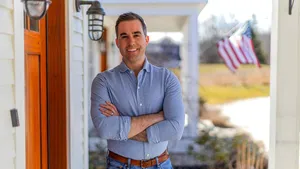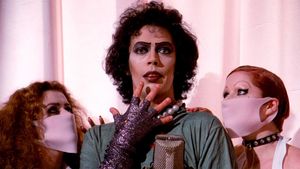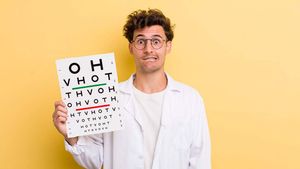Washington, D.C., has become the thirteenth city in the Black Treatment Advocates Network, a program developed by the Black AIDS Institute and Merck & Co. The initiative aims to improve HIV education and treatment for African-Americans through training programs, networking, and mobilizing to address the enormous impact the virus has on this population.
Washington joins the network after being ranked fifth among U.S. cities in terms of new HIV infections. The Community Education Group was the chosen community partner for D.C. and will act as the program's local branch.
Community Education Group has had a long and successful track record in addressing the ups and downs that come with being HIV-positive and African-American. It has a 98% linkage to care rate, immediately setting up HIV-positive clients with a medical appointment and following up with them within 24 hours.
One in 16 black men and one in 32 black women in the U.S. will be diagnosed with HIV in their lifetime, estimates the Centers for Disease Control and Prevention. D.C., which has a large black population, is one of the areas hardest hit by HIV in the U.S, with an epidemic on par with that of some developing nations. The city's HIV-positive population is over 75% African American.
One of the biggest barriers that prevents black Americans from fully benefiting from new scientific breakthroughs is low HIV literacy, says Phill Wilson, CEO of the Black AIDS Institute. The lack of treatment advocacy and treatment education within the black community is exactly what the Black Treatment Advocates Network is designed to address.
The lack of HIV education is especially problematic among people with multiple partners. One person may have one primary partner; others may have two or three. So if one person is infected with HIV, it affects their entire circle.
"The likelihood of transmitting HIV within each network would be 96%," says Toni Young, executive director of Community Education Group. "If we can help with the odds, then we can help with the lack of communication that's happening. That's the whole point we're trying to get to. People don't necessarily tell each other the truth, so everything we're doing is for the national disruption of those networks." This includes education about pre-exposure prophylaxis, or PEP, the use of HIV drugs to decrease the likelihood of transmitting the virus.
The new initiative faces a daunting task. Building a movement from the ground up never easy, but according to Wilson, all it takes is a thorough plan.
"The first thing you need to do when building a movement is recruit participants," Wilson says. "The second thing is you need train them and provide them the skills that they need. The third is you have to employ them or mobilize them. BTAN involves all three of those components, with the goal being to have effective advocates in the field."
But the group's mission goes far beyond just HIV education. Because D.C. opted into the Affordable Care Act very early, around 92% to 96% of residents are covered by some sort of health insurance, Young says. But many people who have been long using emergency care may not know how to use their insurance coverage properly. Teaching people the value of such coverage and how to use it in a preventive manner is vital.
"We're fortunate that the president created a national AIDS strategy," Young says. "What it says it that none of us can get through this alone. It will require the investment of people living with HIV and the rest of the community to have an active voice. It will require our public department and our health department have an active voice, and it makes our private sector partners step up to the plate."
Merck has been involved with the treatment network since its inception. It has funded some of the training that the has done in each city and has provided in-kind support and assistance in developing all the network's chapters. Some observers, however, are concerned about the involvement of a pharmaceutical company, fearing that corporate participation must be financially motivated and worried that it's in the company's interest to prolong the epidemic. After all, if there's no epidemic to treat, how will the corporation make money? Though Young understands the concern, she also believes there is nothing wrong with saying a company is doing a good job.
"Corporations aren't obligated to do this," says Young, "Merck is the forefront of this kind of speaking. They don't just have a corporate responsibility, but they also understand the epidemic. At the end of the day, they do want an end to the epidemic. They are making incredible investments."


































































